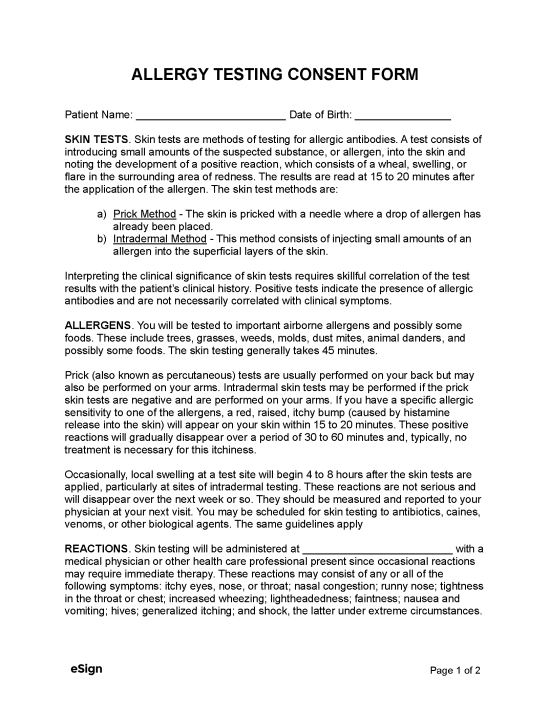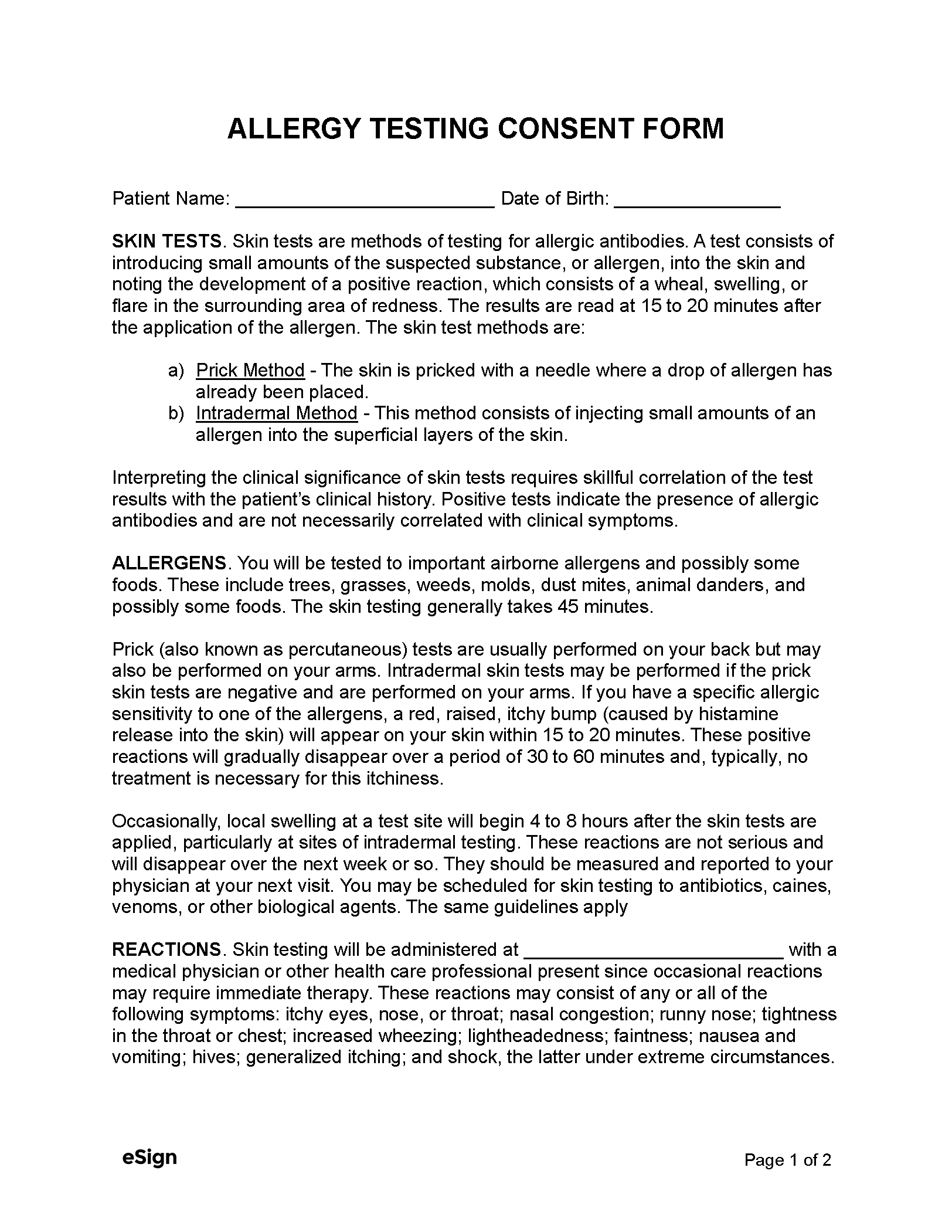Tests Covered by the Consent Form
While there are several methods that allergists and other physicians use to test for allergies, this particular consent form focuses on the following two skin testing procedures:
- Prick test (a.k.a., “scratch test”)
- Intradermal test (injection under the skin)
Key Components
Description of Testing Process
A detailed explanation of the testing process is included in the consent form to make patients aware of:
- The types of allergy tests to be performed.
- The allergens to which their skin will be exposed.
- How long the testing takes and the general reaction times.
- Common side effects.
Precautions and Post-Test Care
The consent form educates patients about precautionary measures (e.g., drugs to avoid) and what to do if certain reactions occur. This information reduces the potential for inaccurate results, ensures patient safety, and minimizes risk for the health care provider.
Documenting Patient Consent
By signing the consent form, patients demonstrate that they understand the information in the document, have had the chance to ask questions (and have received sufficient answers), and grant the health care provider permission to test their skin for allergies.
Note: A parent or legal guardian is typically required to provide consent on behalf of their child and remain present for the duration of the allergy test.

